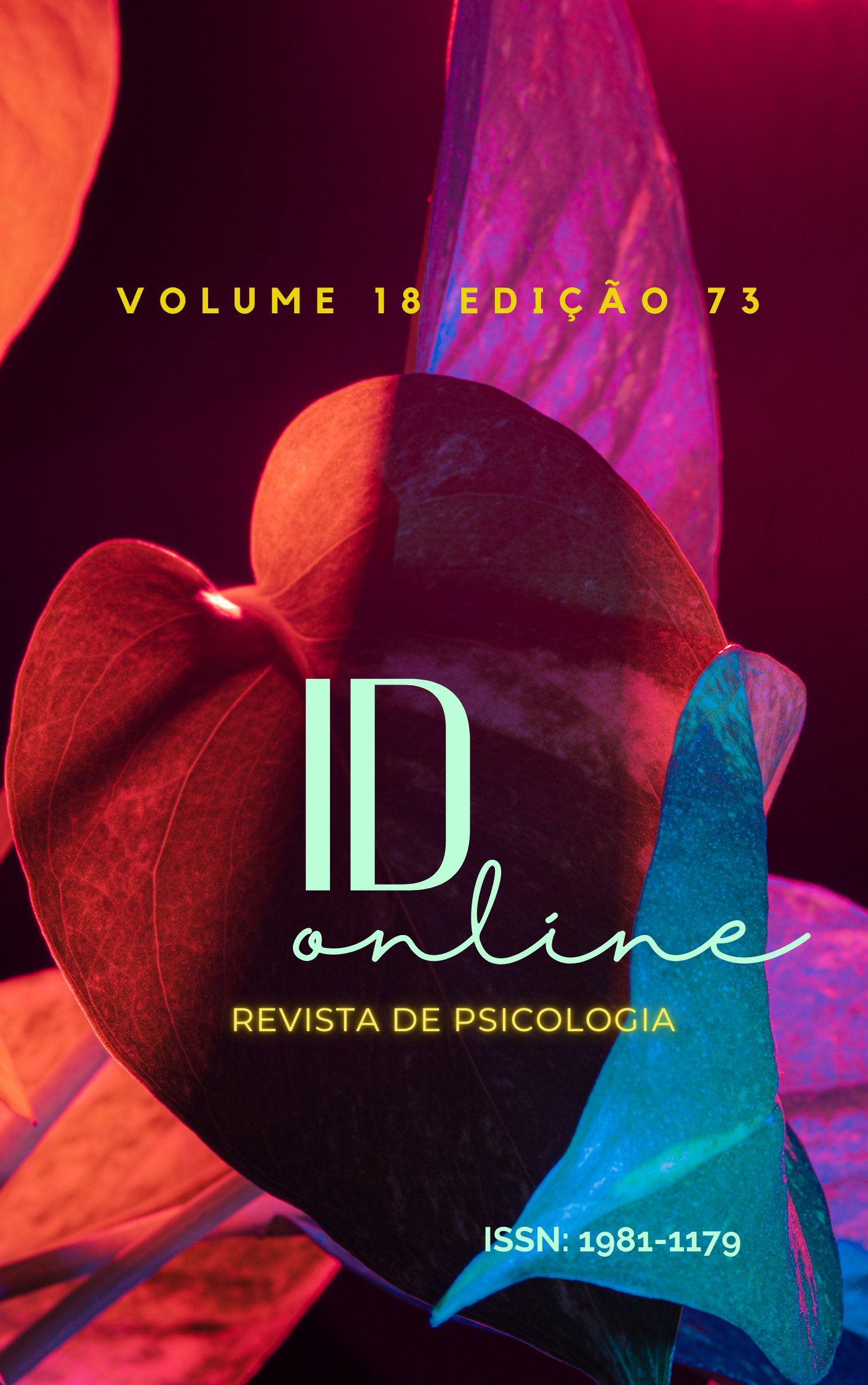Playing and Psychomotor Development: A Bibliographical Study on Teaching through Play
DOI:
https://doi.org/10.14295/idonline.v18i73.4093Keywords:
Play, Psychomotor Development, Reading, TeachingAbstract
The present study, discusses the importance of games and play as tools where children learn while having fun in the teaching-learning process, as well as promoting the development of reading and writing through play, in addition to playing games in order to awaken interest in the teaching-learning process. The starting point for this article is the intensification of playful activities in teaching and their contributions, opening gaps for the development of the habit of reading and writing. The theoretical bases are based on the importance of playing in learning content, the development of reading through play and the competence of games through reading and writing. This is due to a very alarming problem, present in the process of transition from early childhood education to elementary school, transferring the child to a reality of reading and writing. Where games were seen as synonymous with mess and disorder in the classroom. The methodology used to carry out the research has a qualitative character, following bibliographical research resulting from academic guidelines and studies on the subject. The results indicate that the art of teaching through play is an action that few educators and knowledge mediators are able to perform, since playing is part of a child's nature. The study states that when playing is brought into the classroom, students are able to develop and learn more about themselves, their bodies and motor functions, as well as about the environment that surrounds them.
Downloads
References
BELO, Aparecida Alves Leite; NUNES,Cícera Alves. A Influência Positiva da Brincadeira na Educação Infantil. Id on Line Rev.Mult. Psic., Dezembro/2020, vol.14, n.53,p. 280-292. ISSN: 1981-1179. DOI: https://doi.org/10.14295/idonline.v14i53.2871
BRASIL, Base Nacional Comum Curricular. Ministério da Educação. 2018. Disponível em: https// portalmec.gov.br/ acesso em 03/09/2024.
BRASIL, Ministério da Educação e do Desporto. Secretaria de Educação Fundamental. Referencial Curricular Nacional para a Educação Infantil: formação pessoal e social. Brasília: MEC/SEF, 1998. p. 1-71. (Vol. 2). Disponível em: <http://portal.mec.gov.br/seb/arquivos/pdf/volume2.pdf>. Acesso em 05/09/2024.
DENZIN, N. K e LINCOLN, Y. L. Introdução a disciplina e a prática da pesquisa qualitativa; In: DENZIN, N. K. e LINCOLN, Y. S. ( Orgs). O planejamento da pesquisa qualitativa: teorias e abordagens. 2. Ed. Porto Alegre: Artemed, 2006. P 15-41.
FONSECA, V. Psicomotricidade: Perspectivas multidisciplinares. Porto Alegre: Artmed, 2008.
GALLAHUE, D., & OZMUN, J. C. Compreendendo o Desenvolvimento Motor: Bebês, Crianças, Adolescentes e Adultos. São Paulo: Phorte, 2005.
LE BOULCH, J. A Educação Psicomotora na Escola Primária. Porto Alegre: Artes Médicas, 1987.
MEDRADO, Ana Claudia de Souza Menezes; Texeira,Verônica Rejane Lima;. A Relevância dos Jogos eBrincadeiras para o Desenvolvimento da Aprendizagem na Educação Infantil. Id on Line Rev.Mult. Psic., Dezembro/2020, vol.14, n.53, p. 260-270. ISSN: 1981-1179. DOI: https://doi.org/10.14295/idonline.v14i53.2869
MONTESSORI, Maria. Os conflitos durante o desenvolvimento, In: MONTESSORI, Maria. A criança. São Paulo: Círculo do livro. cap. 10, p. 84-88. MONTESSORI, Maria. A descoberta da criança: pedagogia científica. Tradução Pe. Aury Maria Azélio Brunetti. Campinas: Kírion, 2017. 347 p.
PIAGET, J. A Psicologia da Criança. Rio de Janeiro: Bertrand, 1971.
SANTOS, F. C. R. A ludicidade na alfabetização: perspectivas e possibilidades de novas aprendizagens. Trabalho de Conclusão de Curso, UTFPR, Medianeira/PR, 2014. Disponível <http://repositorio.roca.utfpr.edu.br/jspui/bitstream/1/5382/1/MD_EDUMTE _VII_2014_45.pdf.>. Acesso em: 01 abril 2024.
SANTOS, Thayná da Silva; MENEZES, Aurelania Maria de Carvalho. A Importância do Lúdico no Processo de Ensino Aprendizagem eno Desenvolvimento Infantil. Id on Line Rev.Psic.,Dezembro/2021, vol.15, n.58, p. 660-668, ISSN: 1981-1179. DOI: https://doi.org/10.14295/idonline.v15i58.3353
SMITH, P. K., e PELLEGRINI, A. The Nature of Play: Great Apes and Humans. New York: Guilford Press, 2013.
SOARES, Jiane Martins. A Importância do lúdico na Alfabetização Infantil. Disponível em: https://www.webartigos.com/artigos/o-ludico-na-construção-da-aprendizagem Acesso em 04/09/2024.
VYGOTSKY, L. S. A Formação Social da Mente. São Paulo: Martins Fontes, 1984.
VYGOTSKY. Apud FANTACHOLI. Fabiane das Neves. A importância do brincar na Educação Infantil. CESUMAR, Maringá- Paraná. 2009. Disponível em: https://www.brasil escola.com- Acesso em 14 de Outubro de 2024.
Downloads
Published
How to Cite
Issue
Section
License
Copyright (c) 2024 Mirele Leila da Silva Barbosa, Maricélia Félix Andrade Bringel

This work is licensed under a Creative Commons Attribution-NonCommercial 4.0 International License.
Os autores detêm os direitos autorais sem restrições, devendo informar a publicação inicial nesta revista, em caso de nova publicação de algum trabalho.










